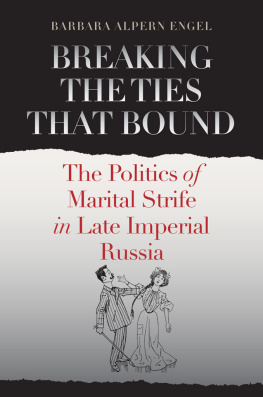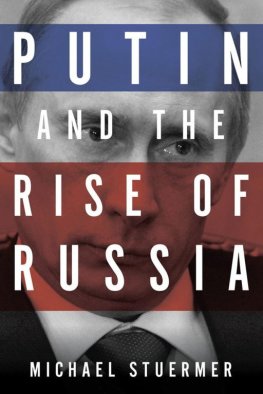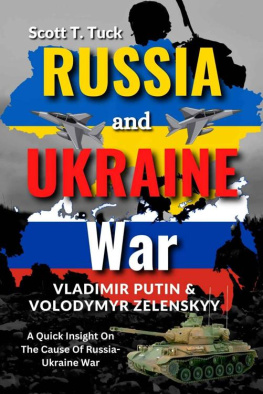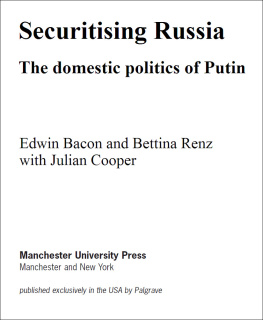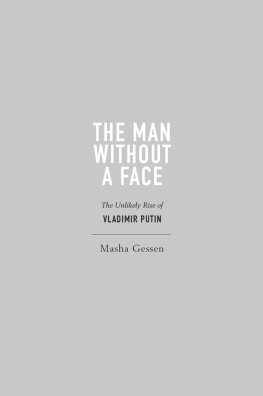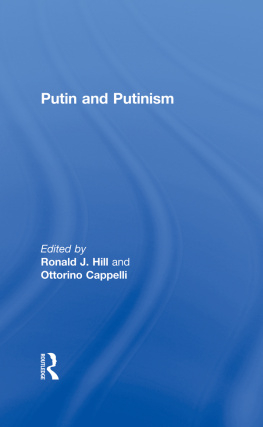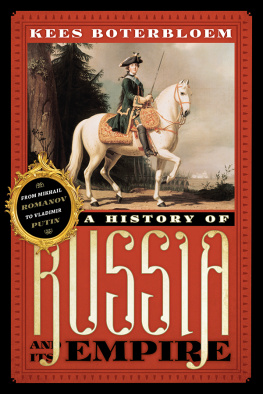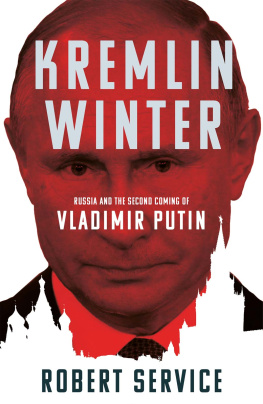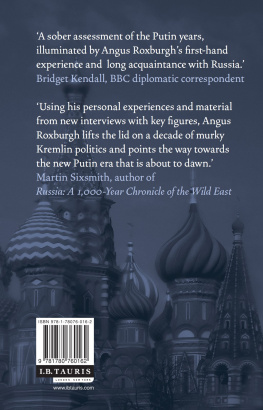Barbara Alpern Engel - Marriage, household and home in modern Russia from Peter the Great to Vladimir Putin
Here you can read online Barbara Alpern Engel - Marriage, household and home in modern Russia from Peter the Great to Vladimir Putin full text of the book (entire story) in english for free. Download pdf and epub, get meaning, cover and reviews about this ebook. year: 2022, publisher: Bloomsbury Publishing, genre: Home and family. Description of the work, (preface) as well as reviews are available. Best literature library LitArk.com created for fans of good reading and offers a wide selection of genres:
Romance novel
Science fiction
Adventure
Detective
Science
History
Home and family
Prose
Art
Politics
Computer
Non-fiction
Religion
Business
Children
Humor
Choose a favorite category and find really read worthwhile books. Enjoy immersion in the world of imagination, feel the emotions of the characters or learn something new for yourself, make an fascinating discovery.

- Book:Marriage, household and home in modern Russia from Peter the Great to Vladimir Putin
- Author:
- Publisher:Bloomsbury Publishing
- Genre:
- Year:2022
- Rating:5 / 5
- Favourites:Add to favourites
- Your mark:
- 100
- 1
- 2
- 3
- 4
- 5
Marriage, household and home in modern Russia from Peter the Great to Vladimir Putin: summary, description and annotation
We offer to read an annotation, description, summary or preface (depends on what the author of the book "Marriage, household and home in modern Russia from Peter the Great to Vladimir Putin" wrote himself). If you haven't found the necessary information about the book — write in the comments, we will try to find it.
Marriage, household and home in modern Russia from Peter the Great to Vladimir Putin — read online for free the complete book (whole text) full work
Below is the text of the book, divided by pages. System saving the place of the last page read, allows you to conveniently read the book "Marriage, household and home in modern Russia from Peter the Great to Vladimir Putin" online for free, without having to search again every time where you left off. Put a bookmark, and you can go to the page where you finished reading at any time.
Font size:
Interval:
Bookmark:


The husband manufactures sandals while the wife spins thread |
The family portrait of Peter the Great, 1720 |
Russian wedding |
Nicholas I of Russia and wife Alexandra Feodorovna |
Family portrait, 1937 |
Peasant engagement |
Russian peasant wedding, 1865 |
Domestic interior |
Domestic basket weavers |
Peasant wedding, 1910 |
Do you and your husband get along well? |
Dont scold me, my dear |
Abortion poster |
What did the revolution grant laboring and peasant woman? |
The enlightened spouse |
Leaving for war |
Happy Housewarming |
Oh, youre having a wedding! |
Pictures Without Words |
The wife has been delayed |
Cafes, dances... Im sick of it all... |
Ill marry you next time! |
Wedding ceremony in Russia, January 2019 |
Font size:
Interval:
Bookmark:
Similar books «Marriage, household and home in modern Russia from Peter the Great to Vladimir Putin»
Look at similar books to Marriage, household and home in modern Russia from Peter the Great to Vladimir Putin. We have selected literature similar in name and meaning in the hope of providing readers with more options to find new, interesting, not yet read works.
Discussion, reviews of the book Marriage, household and home in modern Russia from Peter the Great to Vladimir Putin and just readers' own opinions. Leave your comments, write what you think about the work, its meaning or the main characters. Specify what exactly you liked and what you didn't like, and why you think so.

